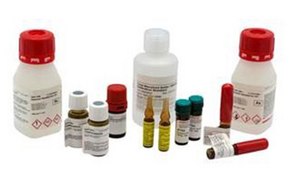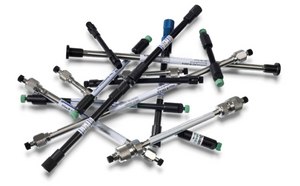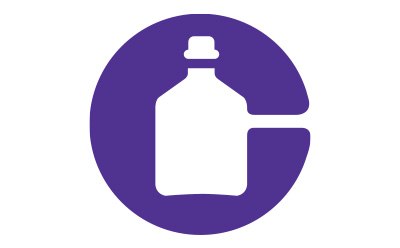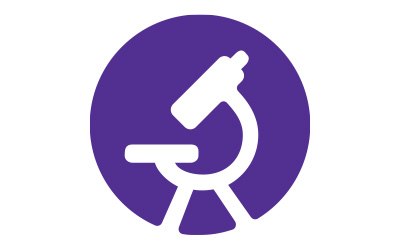Clinical & Forensic Testing
As your partner in clinical testing, we understand the impact of your accuracy and speed on decisions made by healthcare professionals, researchers, and scientists. That’s why our unparalleled portfolio of analytical solutions is backed by guaranteed quality and reliable delivery. Our application-optimized reagents, reference materials, and tools empower every stage of your workflow. Our team delivers expert technical support to help you design and implement lab-developed tests (LDTs) for clinical diagnostics, ensuring accuracy and reliability at every step. Whether you’re performing LC-MS, PCR, ELISA, or NGS testing methods, we’ll help you raise your accuracy to enable healthcare professionals to confidently make impactful decisions.
Benefits
- Superior patient care and safety: comprehensive range of trusted, innovative LC-MS diagnostic solutions for accurate results
- Greater quality control: batch-to-batch consistency, product quality verification, and detection of contaminants or impurities
- Up to date regulations: extensive technical content and global support on drug efficacy, toxicity, and pharmacokinetics
- Speed and convenience: all the products you need are available 24/7 on our e-commerce platform with fast, reliable delivery
Featured Categories
Certified Reference Materials (CRMs) for applications in forensic and clinical toxicology analysis, diagnostic testing, therapeutic drug monitoring, cannabis testing, environmental analysis, pharmaceutical research, and food & beverage testing.
Browse for a broad spectrum of certified reference materials for various pharmaceuticals, illicit drugs and diagnostic biomarkers for your laboratory testing requirements.
Explore our selection of high-quality analytical reagents for ion pair chromatography, derivatization, electrochemistry and spectroscopy.
Our wide selection of HPLC columns for small and large molecule analysis allows you to enhance the separation process in terms of retention, resolution, selectivity, and analysis time, all while reducing the time for method development.
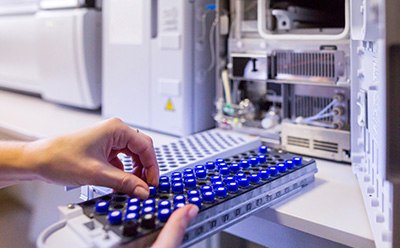
LC-MS-Based Clinical Testing
LC-MS is a powerful analytical technique used more and more in clinical laboratories to analyze complex mixtures and identify and quantify various substances, such as drugs, metabolites, and biomarkers, in patient samples. It offers, often in combination with distinct and robust sample preparation techniques -depending on sample and analyte type, high sensitivity, selectivity, allowing for accurate and fast results for targeted determinations and screenings. LC-MS is particularly valuable in detecting low concentrations of analytes and in identifying unknown compounds, making it an essential tool for enhancing patient care and improving treatment outcomes in today's clinical labs in hospitals. Fundament for reliable results are suitable standards such as certified reference materials to ensure accurate identifications and quantifications.
Applications
LC-MS Workflow
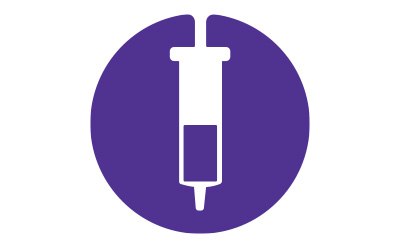
Sample Preparation
Effective sample prep is critical to accurate and efficient analysis. Improve your analysis and protect your instrument by concentrating and purifying your sample
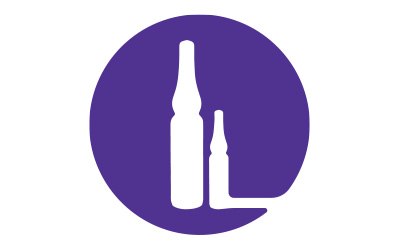
Standardization and Calibration
Reference materials are a critical component of analytical testing workflows and broader quality assurance schemes. Qualify and calibrate your instruments and assays.
- Pharmaceuticals
- Illicit Substances
- Biomarkers

Chromatographic Separation and Analysis
Columns, solvents, reagents and accessories have a critical impact on the accuracy, reliability and efficiency of your analysis. Leverage the available technical resources to optimize your approach.
Visit our document search for data sheets, certificates and technical documentation.
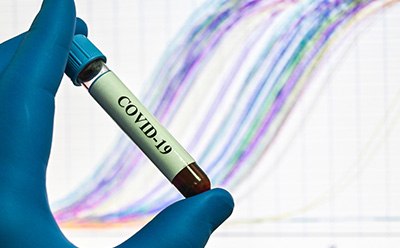
Clinical Applications of PCR
Clinical PCR testing is a widely used technique to detect and analyze the presence, length, or sequence of DNA or RNA from biological samples for diagnostic purposes. While identifying pathogens, genetic mutations, or other molecular markers is the most common use, clinical PCR has broader applications. It plays a crucial role in treatment monitoring, personalized medicine, cancer care, and other healthcare applications.
The PCR workflow starts with sample collection, followed by sample preparation, and concludes with DNA/RNA target-specific amplification. Typically, the post-amplification analysis is performed using qPCR, where quantification occurs in real time during the amplification cycles. Alternatively, end-point PCR can be used, where results are measured after the amplification cycles are complete. A key goal in preparing a DNA or RNA library for next generation sequencing (NGS) is to maximize its complexity while minimizing biases introduced by PCR or other amplification methods, as these factors significantly influence the quality of the resulting library and, ultimately, the NGS results.
Applications
- Infectious disease screening and identification
- Clinical Genomics
- Genetic screening
- Oncology
- Prenatal testing
- Clinical Genomics Method Validation
PCR Workflow and Products

Standardization and Calibration
NGS reference standards are essential for NGS assay standardization and NGS validation, ensuring that assays and instruments are calibrated and validated for optimal performance.
Seraseq® Oncology and NIPT products
- Seraseq® oncology products are most patient-like, highly multiplexed reference samples for pan-cancer disease profiling, disease monitoring, and immune-oncology biomarker validation, facilitating the standardization and analytical validation of NGS assays.
- Seraseq® NIPT products are patient-derived and patient-like reference materials, preserving the native fetal and maternal cfDNA characteristics. They are compatible with multiple assay technologies and platforms including WG & SNP-based fetal fraction estimation methods.
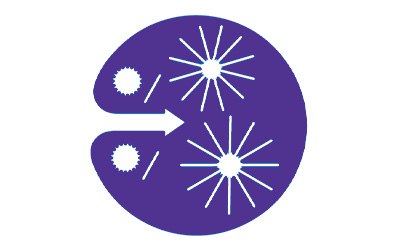
Sample Amplification & Analysis
- Custom RUO Primers & Probes
- Custom ISO 13485 Primers & Probes
- Custom cGMP Primers & Probes
- DNA Amplification Enzymes (e.g. Taq)
- Reverse Transcription (RT) Enzymes
- PCR Amplification Reagents incl. Buffers, Salts and Nucleotides (dNTP)
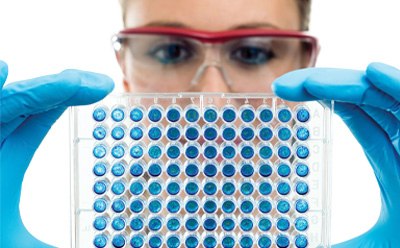
ELISA-Based Clinical Testing
Enzyme-linked immunosorbent assay (ELISA) is an immunoassay technique widely used for high-throughput screening and quantification of antibodies, proteins, peptides, and other small molecules. ELISAs are typically run on a 96-well plate format. Plates can be supplied ready to use for in vitro diagnostics (IVDs) or prepared in-house for lab-developed tests (LDTs).
Applications
- Oncology
- Infectious diseases
- Drugs of abuse screening
- Hormone measurement
- Immune function/immunology
ELISA Workflow and Products
Related Articles
- Optimize serum samples for LC-MS/MS-based free testosterone determination using Supel™ BioSPME 96-pin device and validated equilibrium dialysis methods.
- The conversion of clinical methods to LC/MS/MS offers advantages; however, is accompanied by a few limitations, notably interference effects from the endogenous sample matrix.
- Accurate steroid analysis in blood serum using Supel™ Swift HLB DPX Tips; UTAK and NIST standards.
- Validate urine sample cleanup with HLB SPE for opioid analysis via LC-MS/MS using the Supel™ Swift HLB 96-well plate.
- This Sigma-Aldrich article continues to detail new methodology for the analysis of Vitamin D metabolites using HybridSPE-Phospholipid technology.
- See All (20)
Related Protocols
- This study demonstrates the analysis of Warfarin in plasma samples utilizing chiral and achiral (reversed-phase) LC-MS and effective sample prep to remove endogenous phospholipids
- Accurate measurement of specific proteins in urine is important for diagnosing and managing diseases.
- Efficient LC-MS separation of methamphetamine enantiomers in urine allows sensitive differentiation of illicit D-methamphetamine from over-the-counter L-methamphetamine.
- Optimized sample prep and chiral chromatography methods for the LC/MS analysis of these drug enantiomers in urine
- This report demonstrates the potential of solid phase microextraction as a clinical research tool for the extraction of VOCs associated with lung cancer from human breath.
- See All (7)
Find More Articles and Protocols
Related Resources
- Application Note: Steroid Hormone Analysis in Serum using Supel™ Swift HLB DPX Tips
The Supel™ Swift HLB sorbent provides good selectivity and sensitivity for steroids in a neutral solution, allowing for dilution with water prior to injection.
- Application Note: Determination of Δ9-tetrahydrocannabinol (THC), Vannabidiol (CBD) and Yheir Metabolites in Serum
Determination of Δ9-tetrahydrocannabinol (THC), cannabidiol (CBD) and their metabolites in serum by automated protein precipitation and clean-up by dispersive in-tip HybridSPE® coupled with LC-MS/MS.
- Application Note: The Use of DPX HLB Tips and Hamilton® Robot for Extraction of Opioid Drugs from Urine
DPX stands for Dispersive Pipette Extraction, a patented technology that introduces the benefits of solid phase extraction into a revolutionary, easy-to-use pipette tip.
How Can We Help
In case of any questions, please submit a customer support request
or talk to our customer service team:
Email custserv@sial.com
or call +1 (800) 244-1173
Additional Support
- Chromatogram Search
Use the Chromatogram Search to identify unknown compounds in your sample.
- Calculators & Apps
Web Toolbox - science research tools and resources for analytical chemistry, life science, chemical synthesis and materials science.
- Customer Support Request
Customer support including help with orders, products, accounts, and website technical issues.
- FAQ
Explore our Frequently Asked Questions for answers to commonly asked questions about our products and services.
To continue reading please sign in or create an account.
Don't Have An Account?